
views
Acorns

During the Norman Conquest in the 11th century, English soldiers carried acorns in their pockets to protect them from harm. Since then, the English have coined acorns as a good luck charm. Alternatively, some English legends represent acorns as signs of fertility and new life. Consider carrying an acorn in your pocket or putting an acorn-like charm on a bracelet or necklace for a bit of extra luck.
Alligator teeth

In Africa, many tribe leaders wear necklaces of alligator teeth for luck while gambling or dealing with money. Alternatively, surfers wear alligator teeth charms around their necks in America to protect them in the water. Put on an alligator teeth necklace or charm the next time you play a round of poker or go surfing. Who knows? It may give you an extra boost of luck.
Bamboo

This grass is extremely fast-growing, sustainable, and cheap. Because of this, it’s often used to build lots of things. However, in Asian culture, bamboo is more than a durable resource. The plant is said to bring good luck, wealth, and fortune to those near it. Bring some extra luck into your home by planting a bamboo bush or purchasing a piece of bamboo decor. Know that not all bamboo is considered lucky. “Lucky bamboo” (or Dracaena sanderiana) is a houseplant considered by Feng Shui experts to bring luck into a home—so make sure you’re buying the right plant!
Cardinals

In Native American culture, cardinals are believed to be spirits delivering messages to loved ones. Similarly, these red birds represent God’s spirit in Christianity and Catholicism. Because of this, cardinals are often depicted as prosperous signs. Basically, if you see a cardinal, a positive, lucky message is coming your way. Keep your eyes and ears open when you see a cardinal. Your message could come in the form of a conversation with a loved one, a phone call, a text message, or a billboard.
Coins
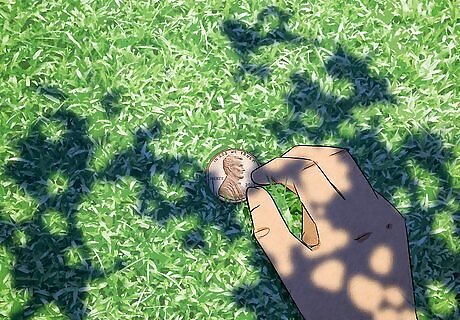
Some believe that finding a US penny heads-up is a lucky sign, while others believe getting a coin with your birth year on it is lucky. Depending on where you are, different coins can be symbols of luck. Check out the most common lucky currencies: The Silver Sixpence is found in Great Britain, and brides often wear them in their shoes for luck. The Lucky Irish Penny is from Ireland and has a harp on one side and a hen and chicks on the other. Leap Year Mercury Dimes are from the US, and finding one is often a sign of luck and prosperity. If you see a coin lying about, pick it up! It may bring you luck for the rest of the day.
Conch shells

In Hinduism, a conch shell is a sign of good luck because it represents everlasting life. In India and China, these shells were also used to warn others in battle, serving as a protective symbol. Place a conch shell on your table as a decorative centerpiece to invite luck into your home.
Crickets

In Chinese culture, crickets are lucky symbols that bring good fortune, prosperity, and wealth. These insects are always multiplying, and their sing-song chirp is thought to be a positive sign. Back in the day, Chinese farmers used the first cricket chirps of spring as a sign to plant their crops. Being so lucky, it’s considered bad luck to kill a cricket. If you see a cricket in your house, it may be a sign that something good is about to happen. Similarly, cicadas are signs of good luck in Western culture and are often mistaken for crickets metaphorically.
Dragons
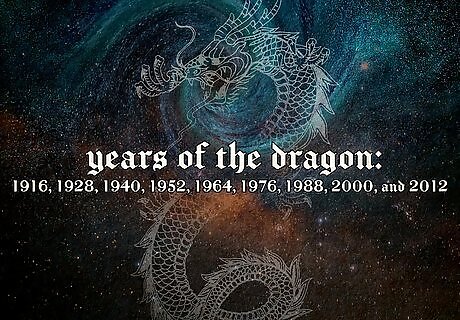
In Chinese culture, dragons represent good luck, strength, and health. The dragon is the 5th Chinese zodiac animal and embodies the male element, Yang. It’s believed that those born in a year of the dragon are inherently lucky and have a prosperous future. The years of the dragon are 1916, 1928, 1940, 1952, 1964, 1976, 1988, 2000, and 2012. Use the dragon as a reminder to unleash your inner power—make your own luck!
Dreamcatchers

In Native American culture, dreamcatchers are signs of good luck because they filter out negative energy. Tradition says that hanging a dreamcatcher by your bed will help you sleep more soundly, as the intricate webbing traps any bad dreams. Try hanging a dreamcatcher in your bedroom. Who knows? Your dreams may be happier because of it.
Elephants

These large, strong animals are lucky symbols in Thailand and India. You may notice that many Asian families and businesses have an image or statue of an elephant with their trunk up near the front door. This is because they believe the elephant will help bring luck into their home. In Hindu culture, the god of luck is Ganesha, who has multiple arms and an elephant head. Place an elephant statue near your front door to welcome luck into your space. If luck doesn’t come, at least you have new, super cute decor!
Evil eye

Even though “evil” is in its name, the evil eye is anything but! The evil eye is a protective charm that’s said to ward off evil spirits and forces. Appearances of this symbol have been found on statues, carvings, and jewelry since 3500 BC. Wear an evil eye necklace, charm, or bracelet to bring yourself daily luck, boost your confidence, and push away negative vibes.
Four-leaf clovers
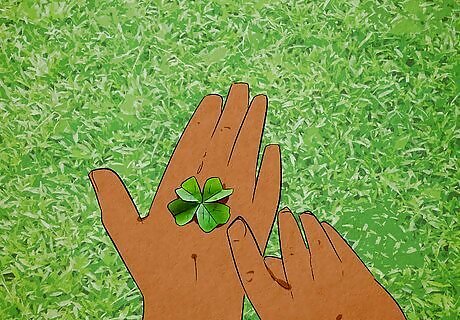
Originating in Ireland, these lucky symbols can be spotted almost everywhere! Legend has it that spotting a four-leaf clover in the grass will bring good luck to the discoverer for an entire day. Need a bit of extra luck? Search for four-leaf clovers in your yard. As a hint, they tend to hang out with other clovers.
Green

The color green is considered a universally lucky color. In Western cultures, green is associated with wealth, prosperity, and other lucky symbols (like a shamrock or four-leaf clover). In Chinese culture, the color green is also very lucky. Green is associated with the wood element in the Chinese Five Elements Theory and is a symbol of wealth, fertility, and health. Wear green on a day you need a little extra luck, like when you're about to take a big test or interview for a new job. Some say wearing the color attracts new opportunities.
Hummingbirds

Spiritually, hummingbirds are symbols of luck, health, and beauty. These fast creatures are believed to be messengers and radiate nature’s energy. In meditation, a hummingbird affirmation is a mantra that revolves around luck, such as “I make good luck happen.” Take seeing a hummingbird as a positive omen—good things are coming your way!
Horseshoes

Made from iron, horseshoes quickly became a symbol of luck and protection by Western Europeans in the early 1600s. While horseshoes protect a horse’s hooves, back in the day, they also believed that the iron in the horseshoes kept witches away. Since then, horseshoes have remained a good luck charm. Protect your family by hanging a horseshoe outside or inside your home. Place it right-side up so the luck doesn’t “spill” out of it.
Keys

The ancient Greeks referred to these lucky objects as the “Keys of Life.” They believed keys gave them power to pray to the gods. Legend says that if you hold a key in your hand or wear one around your neck when you pray, your prayer will be answered by a divine entity. Try adding a key or key-like charm to a necklace or bracelet. This way, you’ll have a little extra luck wherever you go.
Ladybugs
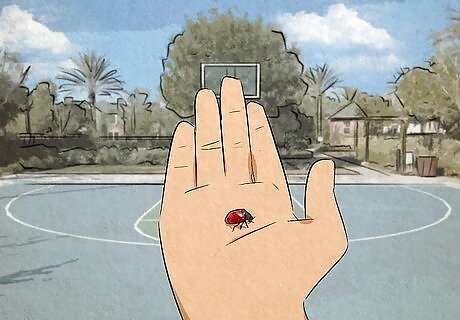
These dotted red beetles are famous for eating aphids (crop-eating pests). Because of this, farmers say it’s a good day when they see a ladybug or two flying around. This logic trickled into the general public, making ladybugs a universal sign of good fortune. In America, many believe that something good will happen if a ladybug lands on you. Try catching a ladybug for some extra luck. When you catch it, make a wish and let it go. Your luck will come from whichever direction it flies off to.
Number 7

In the Bible, God created the world in 6 days and rested on the 7th. Because of this, many Western religions believe 7 is a holy and prosperous number. Along with this, 7 appears in other important landmarks and symbols around the world: there are 7 continents, 7 Wonders of the World, and 7 colors in the rainbow. Make a wish every time you see the number 7, as its luck may help brighten your day.
Number 8

The number 8 is one of the luckiest numbers in Chinese culture. Associated with prosperity, success, and social status, many believe that spotting the number 8 is a sign of good fortune. Keep your eyes peeled for the number 8. If you spot it, consider it a sign that you’re doing the right thing—you’re on the road to success.
Number 9

In Feng Shui, the number 9 represents completion, making it a number of success. In Christianity, the number 9 also represents the traits of God’s holy spirit: love, joy, peace, patience, kindness, goodness, gentleness, faithfulness, and self-control. If the number 9 pops up in your life repeatedly, take it as a sign of good luck. Things will likely work in your favor.
Number 108
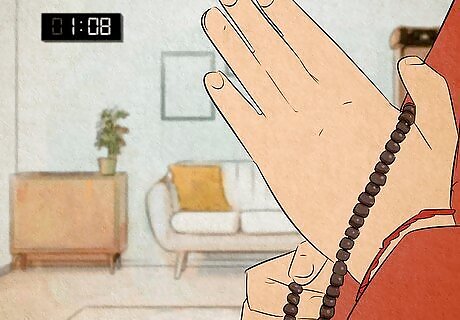
108 is a sacred number in Hinduism and Buddhism. This number is a multiple of 9, making it a number of completion. On top of this, there are 108 beads on a mala (string or prayer beads), and Hindus and Buddhists typically chant 108 times. Take seeing the number 108 as a sign that everything happens for a reason. You’re on the right path, and you will reach your goal.
Oranges
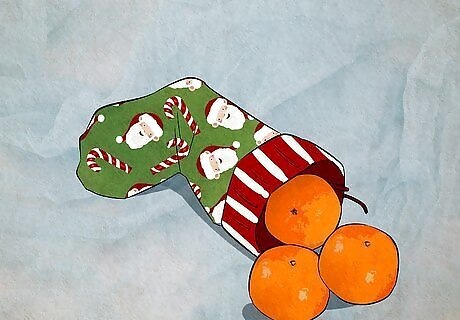
In China, the Mandarin orange is a symbol of good fortune and abundance during the Chinese New Year. These citrus fruits are often used as decorations and gifted to loved ones to celebrate a happy new year. Along with this, oranges are often given at Christmas in Eastern cultures. It’s believed that Saint Nicholas leaves oranges in children’s stockings to bring them good luck. Take part in these cultural traditions to bring luck to you and your family all year round! Cut open an orange on New Year’s Day, or place an orange in your family’s stockings on Christmas Eve.
Pigs

Pigs are considered lucky animals in China and Germany. These round creatures are signs of wealth, and pig trinkets are often gifted during New Year's as lucky tokens. Buy yourself a miniature pig statue on New Year’s Day. Who knows? The little pig may just help your new year start right.
Praying mantises

In China, a praying mantis is a sign of good fortune, and in Japan, they’re signs of luck in business. These fascinating insects are known for their hunting skills and are difficult to find. Because of this, seeing a praying mantis is considered a sign that good things are coming. If you see a praying mantis, close your eyes and take a moment to relish in the present moment. Then, make a wish—what would make you the luckiest person right now?
Rabbit’s foot

People have been carrying rabbit feet in their pockets for centuries with the superstition that they bring good luck. It all started with a misinterpreted African American belief: killing a rabbit was unlucky. Over the years, the belief got twisted, and soon Europeans were carrying around rabbit feet as good luck charms. If you believe in superstitions, put a rabbit’s foot on your keychain or keep one in your purse or bag. After all, having a little extra luck (whether real or not) couldn’t hurt!
Rain

Despite popular belief, rain is considered a good omen on any day (even your wedding day). Rain symbolizes positive things like change, renewal, and life. Because of this, it’s also a sign of good luck. If it rains on a day that’s important to you, chances are you’ll experience extra luck. Take a moment to breathe in and relax when it rains. Let the universe do its thing—it’s okay to let go of the reins.
Shooting stars

Legend has it that wishing on a shooting star can make even your wildest dreams come true. The origin of this legend is said to come from Claudius Ptolemy, an Alexandrian astronomer and mathematician. He was the first to wish upon a shooting star in ancient Greece. Look up at the night sky and see if you can spot a shooting star. If you do, make a wish—it may just come true.
Three-legged toads

A three-legged toad, or money frog, is a popular Feng Shui symbol meant to attract wealth and financial stability. In Chinese culture, people place a money frog in their home—near the front door, in a “wealth corner,” in the garden, or on a desk—to bring luck to their finances. Keep a picture of a three-legged toad in your wallet to attract wealth wherever you go.
Wishbones
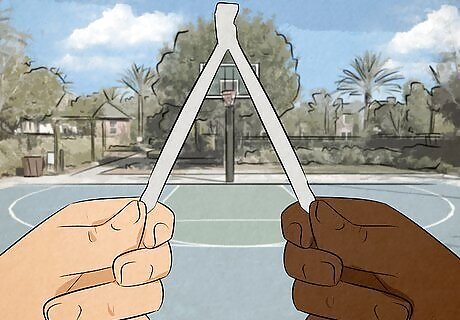
A wishbone is the furcula bone of a bird. The ancient Etruscans in Italy believed that birds were fortune-telling oracles. Because of this, the habit of drying out and snapping wishbones has become a universal custom. Hold one end of a wishbone and have a friend hold the other. Then, make a wish. On the count of 3, tug on the bone. Your wish may come true if you have the larger end after the bone snaps.


















Comments
0 comment